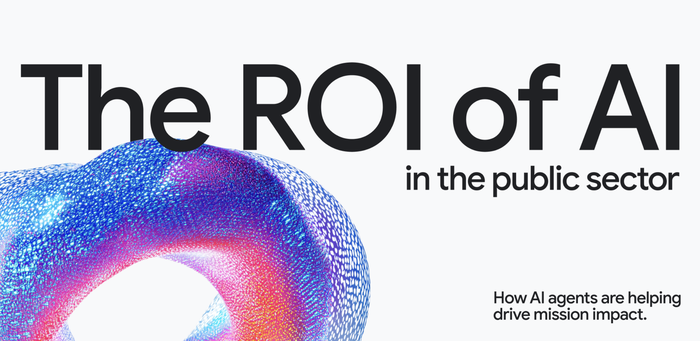Veteran Transitioners Find Success at Google Public Sector
Erin O'Connor
Recruiter, Google Cloud
Making a career change can be daunting, especially if you’re transitioning from military service into the tech world. In celebration of Veterans Day, we spoke with five Googler veterans who share their experiences and offer insights for others looking to make their way into tech after active-duty service.
As a member of the Google recruiting team, and a military partner of 11 years, I’m passionate about helping candidates navigate transitions like these. I’ve seen firsthand the valuable lessons and skills that veterans and their families bring to a wide variety of roles. We hope that these stories serve as a testament to this fact, and light a path for other Veterans to find success in tech.


Kevin Mulligan, senior manager, U.S. Federal Policy and Outreach, Government Affairs and Public Policy
Kevin Mulligan of Washington, D.C., a former career Marine Corps F-18 pilot, came to Google Cloud by way of humanitarian and crisis relief work he conducted both as a business owner and through the United States Agency for International Development, a federal humanitarian agency. During his last military tour in the Middle East, Kevin “saw the impact of the global water crisis on the human condition and its influence on driving people to extremism.” This formative experience drove his passion to work toward solutions for poor and water-starved countries globally, and in December 2021, Kevin was recruited to join the Google Cloud Government Affairs and Public Policy team, supporting the development of our relationships with the Department of Defense.
Success for Kevin and his team is impossible without strong collaboration and teamwork, and meaningful engagement with a diverse group of stakeholders. Kevin also calls out the ability to thrive in ambiguity, caring for and openly praising your people, contingency planning, and risk analysis/mitigation as valuable skills that veterans bring to post-military roles. He emphasizes, “You really do have transferable skills - even if your military job wasn't overly technical.”
Kevin has found that not over-indexing on the role or rank you held in the service is important when navigating the transition to a civilian career, so as not to limit the roles you pursue. “Don't give your battle with your imposter syndrome any air. The same uncertainty and apprehension you had when you joined the military will be present when you join. A new company; however, just like you experienced in the military, once you get your feet beneath you, your value will shine through.”
Kevin reflects on an additional bright spot he has found working with Google. “What I was surprised by was how energized and excited I was to find a role that inspired the same level of dedication and commitment as I felt in the military.
Google is far more mission-oriented than I appreciated. There is a collective commitment to supporting that mission that is quite similar to serving in the military.
Kevin Mulligan, Senior Manager, U.S. Federal Policy and Outreach, Government Affairs and Public Policy


Laurie White, developer programs engineer, Google Cloud
Laurie White knows all about career changes after transitioning from Army officer to higher education professor to Google Cloud developer programs engineer. Laurie was one of the first women to serve as an Army officer outside of the Women’s Army Corps in the 1970s, serving tours in Korea and Germany. She quickly found that perseverance, thick skin, and building solid rapport with her teams were key to her success.
Upon leaving the Army, Laurie pursued her educational goals, ultimately earning her PhD in Computer and Information Sciences. Laurie’s ability to persevere in a male-dominated space in the Army propelled her throughout her degree programs. After 30 years working as a professor of Computer Science, she turned her attention to the tech space, where she could use her vast knowledge of tech and the higher ed landscape in a new way. Now, at Google, she is a leader in Cloud educational programs.
Laurie admits that applying to Google later in her career, after working in vastly different industries, was daunting. “I didn’t get hired after my first interview. You will likely apply multiple times, so resilience is important.”
Her advice to prospective veteran applicants - especially women and those retiring after 20-30 years of service: go for it! “If you meet 50% of the qualifications, apply to the job and have confidence in your experience.” She also points out that working in Cloud does not mean you have to be able to code. “There are plenty of roles that are less technical, and Google certifications are amazing tools to add to your skillset.”


Yoel Leinwand, head of industry, large customer sales, Global Business Organization
Yoel Leinwant is an Atlanta-based head of industry in the Large Customer Sales organization helping some of Google’s largest customers with their digital strategy. Yoel’s military career followed a path he had not initially planned on. A week after receiving a four-year Reserve Officer Training Corps scholarship, he was medically disqualified for being too nearsighted. He instead decided to enlist in the Air Force and pursue a degree after serving. Yoel served as a radio/TV broadcast journalist, hosting a live morning radio show for U.S. troops in Germany. After completing his degree and working in national radio ad sales, Yoel joined Google.
Yoel has found that his work ethic, ability to navigate ambiguity, and perseverance when facing a challenge have carried over from his military service in a big way. He says, “Veterans are very humble... too humble when it comes to sharing their incredible work. It is important to share what you accomplished and don't hold back on your achievements. I think there is also a preconceived notion that you need to be an officer to have transferable skills for Google and that is false.”
Yoel was also pleasantly surprised to find strong camaraderie with other veteran employees. “Historically there has been a preconceived notion that Google is not veteran friendly and I want everyone to know that is false. Google is a very warm and welcoming place for veterans and we have a strong Employee Resource Group (ERG) called VetNet that is very active internally and externally.”


Jon Griffith, senior staffing operations associate, Google
Jon Griffith recently joined Google in our staffing operations organization. Jon served in the Army as a firefighter and infantry soldier, serving his last tour in Iraq. When it was time to leave the Army, his transition was condensed and military transition classes left him with more questions. “I had a very limited understanding of how to write a resume or how to showcase my transferable skills to interviewers.”
In 2021, after working in a few different industries, including civilian firefighting, Jon attended Google’s Veteran Network Career Week. There, he connected with a mentor who reviewed his resume and provided guidance on the application and interview process. Jon quickly leaned into his transferable skills including the ability to problem solve in ambiguous situations, learn new skills quickly, and prioritize a heavy task load, when interviewing for Google roles.
Jon wants other veterans to know: “Do not let your rank or job title from the military define who you are for the rest of your life. Similarly, do not let what you did in the past confine your ability to pivot into a new career field. Anyone that is adaptable, flexible, and has a willingness to learn can achieve success in any role.”
He also assures, “The shift to a completely different industry or career path can leave many veterans feeling like they don’t have what it takes to succeed; [however], the more exposure you have to it (applying, interviewing, working at Google) the more comfortable you become.“


Kaitlin Holmes, Air Force Fellow, Google Public Sector
Kaitlin Holmes is an active duty Air Force Public Affairs officer and fellow in the Education with Industry (EWI) program, working in Washington, D.C. As part of Google’s Public Sector Public Relations team, she shares stories about Google Cloud’s contribution to the growth and efficiency of federal, state, and local governments and educational institutions.
Kaitlin shares, “One thing I was very anxious about stepping into this role was my lack of experience in tech. I don't come from a tech or coding background, which I previously believed would negatively impact my ability to do my job. Simply, I was very wrong. Regardless of your background, as long as you have passion for your particular line of work, Google will give you room to shine.”
Kaitlin has found that teamwork, collaboration, and making informed decisions that benefit the team at large are skills that seamlessly transfer from the Air Force to her fellowship. Her advice to veterans interested in Google: “Take the leap! The lessons you learned as a servicemember will undoubtedly bring you far as a Googler, no matter what your rank or role was in the military.”
Speaking with our Veteran Googlers, it’s clear that those coming from active-duty service have more transferable skills for tech roles than they might think. While it’s common to apply and interview for multiple roles before landing a position (an experience most of the folks we spoke to experienced) it’s important to stay resilient. Once at Google, veterans find a sense of community within the VetNet ERG and within their mission-driven teams.


